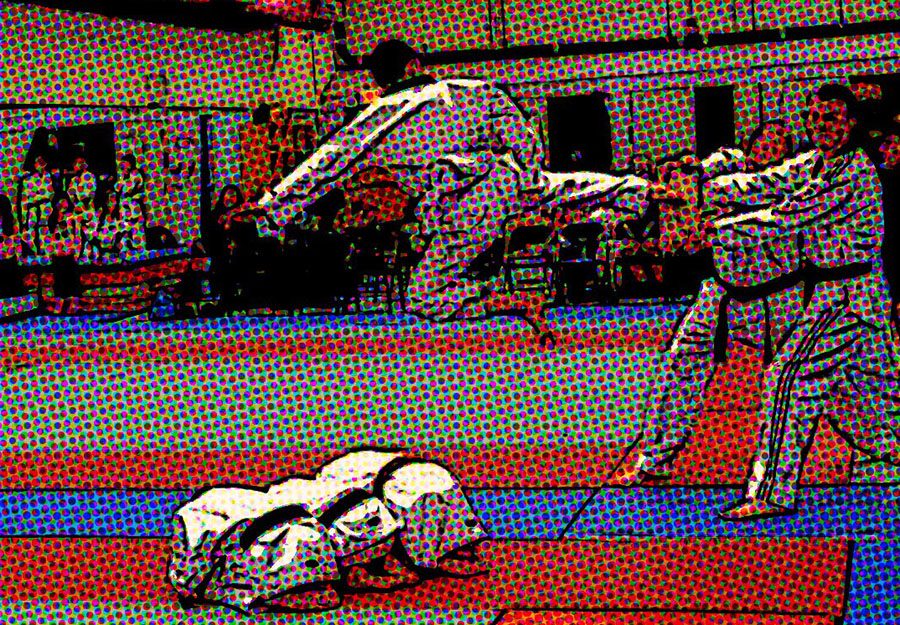Your donation will support the student journalists of Iowa City High School. For 2023, we are trying to update our video and photo studio, purchase new cameras and attend journalism conferences.
Ryan Carter
February 13, 2019
Ryan Carter ‘20 has been practicing taekwondo for 11 years. Nevertheless, he says he has never stopped learning.

“One of the guys I used to train with, Michael Clapp, he said, ‘Once you get your black belt, you re-learn everything that you learnt up till then,’” Carter said. “Learning how to do correct movements and techniques is never the hard part. The hard part is having the control when executing them…especially when teaching younger kids. It’s also the same thing with music. You can teach an eighth-grade player to play some insanely hard thing…but if they don’t have the technicality musically to play it, [they can’t]. It’s the same thing with martial arts.”
Control is a crucial aspect of taekwondo, Carter said.
“When I started doing it competitively, there wasn’t really a youth competitive team, so my brother and I would train with the collegiate people, and the only reason my dad let us do that is that he knew the level of control all those guys had while they were sparring,” Carter said. “Some of my friends might not say this–that I, as a person, have self-control when I do things–but it does teach you about self-control and to realize the things that you can and can’t control. My teacher…she was almost like another parent to me, the way that she trained me and taught me and instilled a lot of morals.”
Carter said the control and honor system of taekwondo were integral to his performance during the half-decade he spent in the competitive circuit.
“You end up meeting a lot of people and you learn something new from every person that you meet. There’s this one guy–when we’d compete, we were in the same division…we would spar each other a lot. Right before our fight, we would be talking casually and joking around…then they’d call our names up and we stepped in the ring, and we were aiming to win against the other person,” Carter said. “You view each other as equal. There’s this mutual respect, whether you know the person or not, through the sport. Of course you’re both trying to win…but because of the way they are and the way they fight, you can view them as equals.”
As he has grown up, Carter said, taekwondo’s presence in his life has evolved.
“It was my sport growing up. Some kids did club soccer, others did running–for me it was just taekwondo. That’s just what I did and I enjoyed doing and my whole family did,” Carter said. “I started doing it competitively when I was about eight or nine, and then I stopped when I was 15, because that’s when you can start going for knockout shots and I valued my brain a little bit. I had other things I wanted to do–like for trombone, you need to use your hands. So I stopped doing it competitively.”
Now, though, Carter said his time in taekwondo has shaped him in more ways than one, including giving him an ideal to live up to in his daily life.
“Some of the people I’ve trained with, I still look up to them as people. They might make a stupid joke, but when it comes down to it, I know they’re a reliable person, they’re a good person, I can trust them,” Carter said. “I like to think I’m sort of like that sometimes, where I can be the stupid guy that I am and do all this other wacky, stupid stuff, but then when it really comes down to it I can be there, helping people out and doing what needs to be done.”
